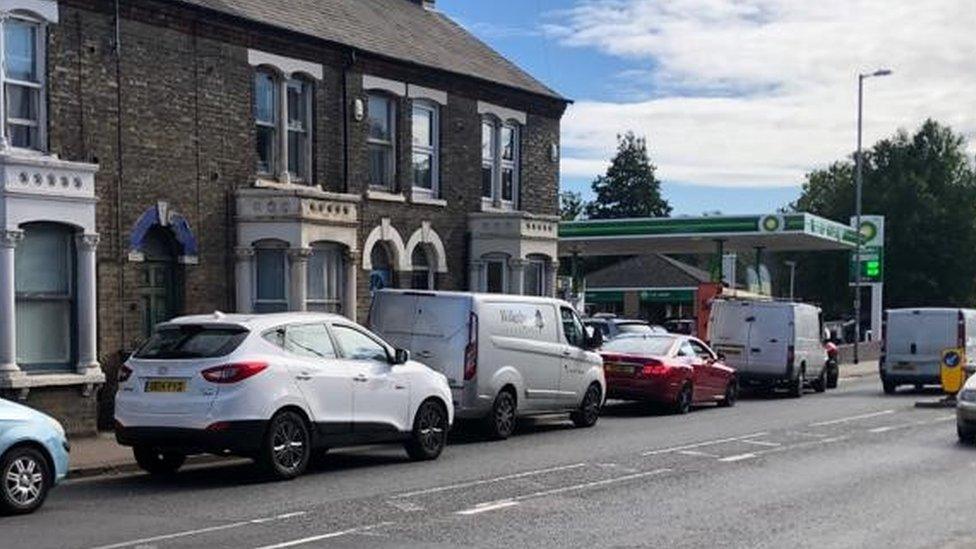Key workers struggling to travel amid fuel issues
- Published
- comments
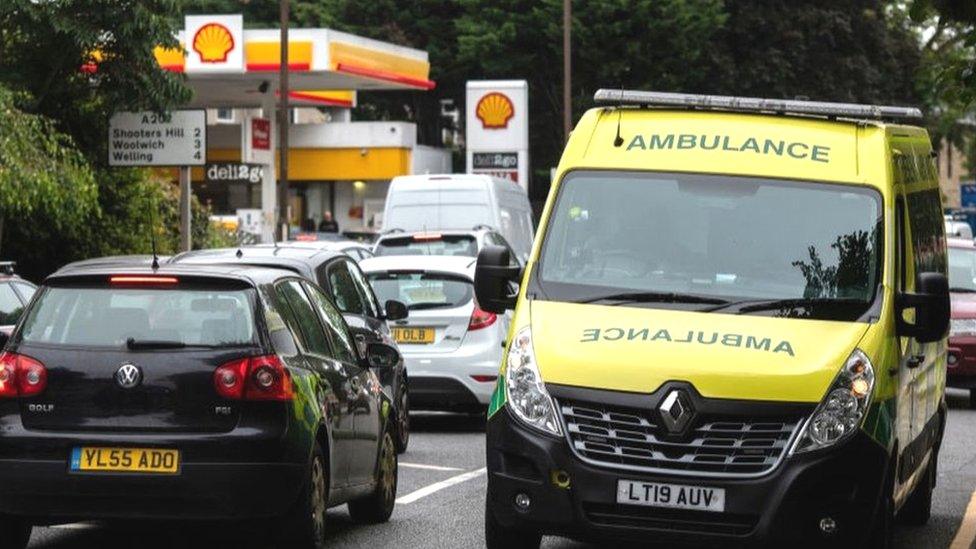
Panic buying at petrol stations has led to some key workers struggling to get the fuel they need to travel to their work.
The surge in demand for fuel came after fears lorry driver shortages would hit supplies of petrol and diesel.
Doctors and unions representing teachers and carers have called for key workers to get priority at the pumps.
One hospice in Oldham tweeted, external that it was in "urgent need" of petrol for its cars.
Allow X content?
This article contains content provided by X. We ask for your permission before anything is loaded, as they may be using cookies and other technologies. You may want to read X’s cookie policy, external and privacy policy, external before accepting. To view this content choose ‘accept and continue’.
Rosemary Botting, who runs Karosel Care and Domestic Services in West Sussex, told the BBC that if two of her carers were still unable to find a station with fuel ahead of their next shift, they would be unable to tend to "vulnerable" service users.
Ms Botting said if the current crisis wasn't resolved by next week, then she envisaged her care company would be in breach of safeguarding guidelines to its 12 customers.
"We will be putting our service users at risk," she said. "We would not be able to send a carer out to somebody."
Ms Botting said her staff helped people living in rural areas throughout west Sussex, which meant driving - and a tank full of fuel - was essential.
One of her carers was half an hour late to her first call in because of traffic caused by queues at petrol stations, she said, which meant her first patient, who cannot get out of bed unaided, remained there until she arrived.
"I have got to inform all the other service users that their carer is running half an hour late. We pride ourselves on being on time," she said.
"We got through Covid. Not a single user in our care contracted Covid. The reason I do this job is because I care. It's just a bit of a nightmare at the moment."
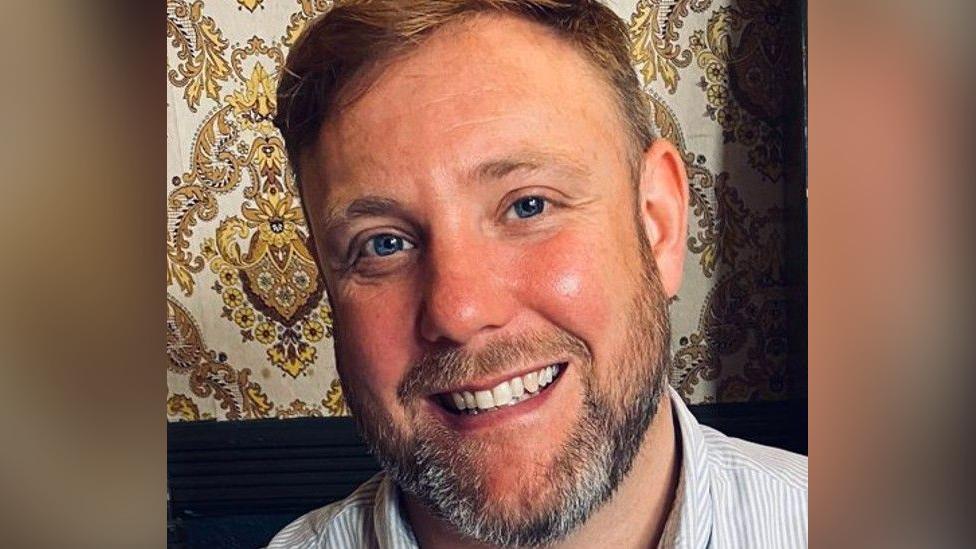
Colin McDonald fears hospital appointments could be cancelled
Colin McDonald, an orthopaedic registrar at a district general hospital in the East Midlands, told the BBC that if fuel supply issues continued, and he couldn't to travel to work, there could be delays to patient surgeries at the start of his shifts, which could then delay his fracture clinics in the afternoon.
"This could lead to cancellations," he said. "If patients live far away from the clinic they may not be able to get in, staff may not be able to get in."
Mr McDonald said he had been worried about not being able to get fuel on Sunday, but managed to buy some petrol which had been kept aside for key workers at a petrol station on Monday.
"Seeing people fill up multiple jerry cans of fuel - I just don't understand what their mentality is," he said.
"I find it very difficult to comprehend. It appears very selfish... they are just looking after themselves and not really considering the needs of others and key workers."
'Ridiculous' prices
Andrew Wagstaff, a civil servant from Nuneaton, Warwickshire, left his home at 04:45 BST to hunt for fuel to make his 57-mile trip to work.
After finding all petrol stations closed in his area, he finally got fuel at Watford Gap service station.
However, he said prices had been hiked to 157.9p per litre for diesel, which described as "ridiculous".
"It cost me £65 to fill up three quarters of a tank," he said. "I do an essential job. It's frustrating that people - who are not essential workers - are just panicking for no reason."
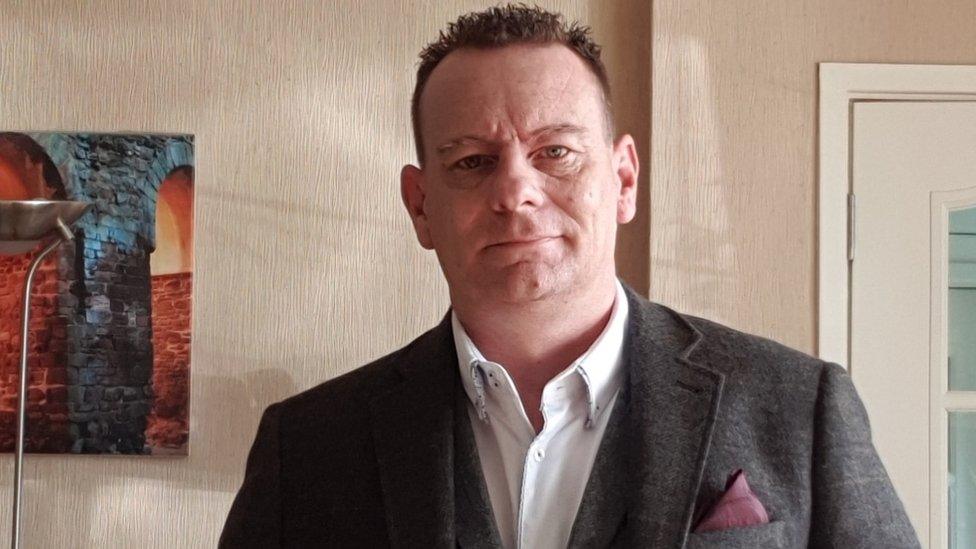
Andrew Wagstaff said people were panicking for no reason
Most bus and coach services have not been affected by the fuel supply issues, according to the Confederation of Passenger Transport.
Meanwhile, the Petrol Retailers Association (PRA), which represents 5,500 out of the UK's 8,000 filling stations,said there were "early signs" the crisis was "ending, with more of our members reporting that they are now taking further deliveries of fuel".
"Fuel stocks remain normal at refineries and terminals, although deliveries have been reduced due to the shortage of HGV drivers," said PRA executive director Gordon Balmer.
"We have conducted a survey of our members this morning and only 37% of forecourts have reported being out of fuel today. With regular restocks taking place, this percentage is likely to improve further over the next 24 hours".
- Published28 September 2021
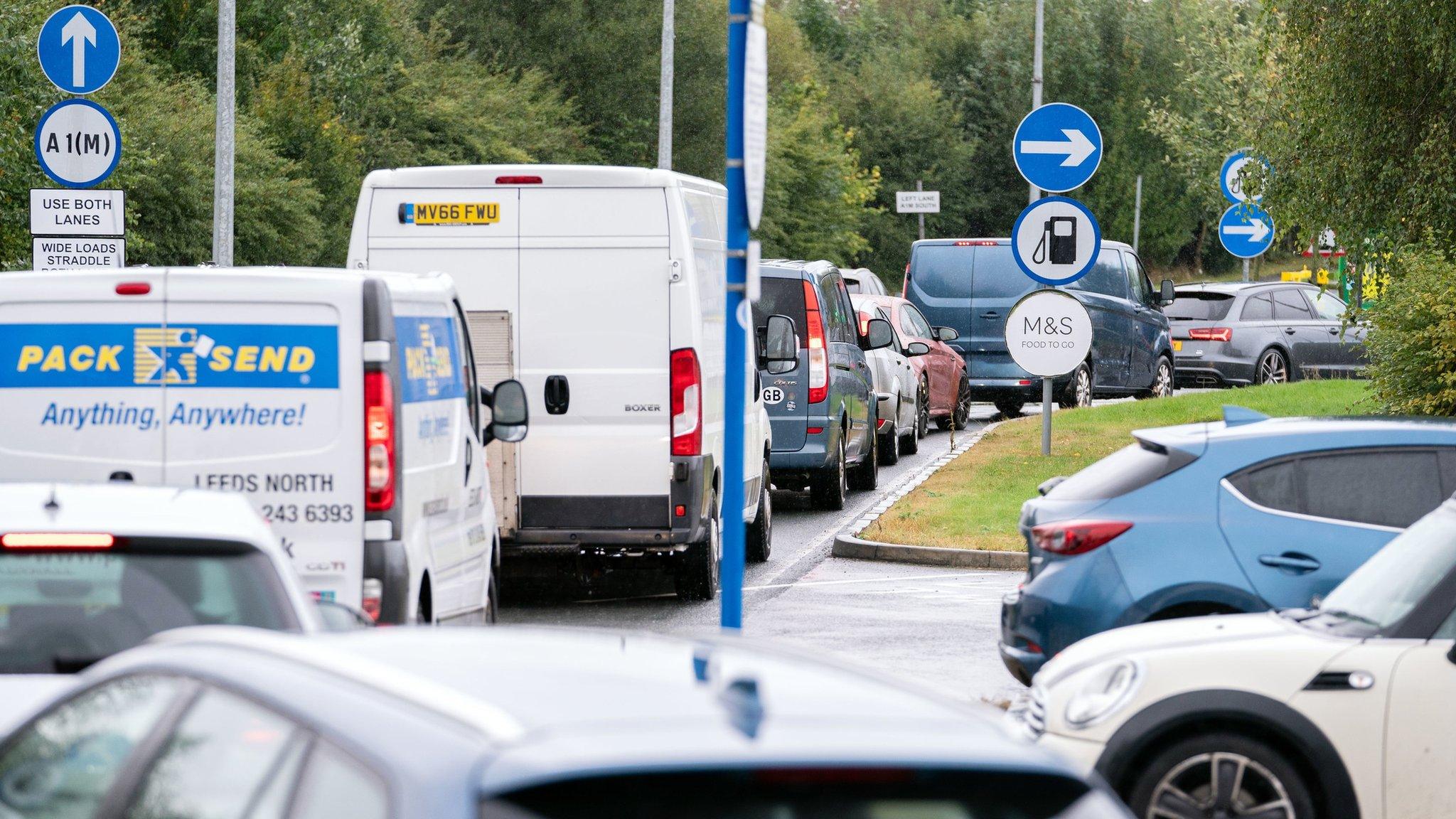
- Published27 September 2021
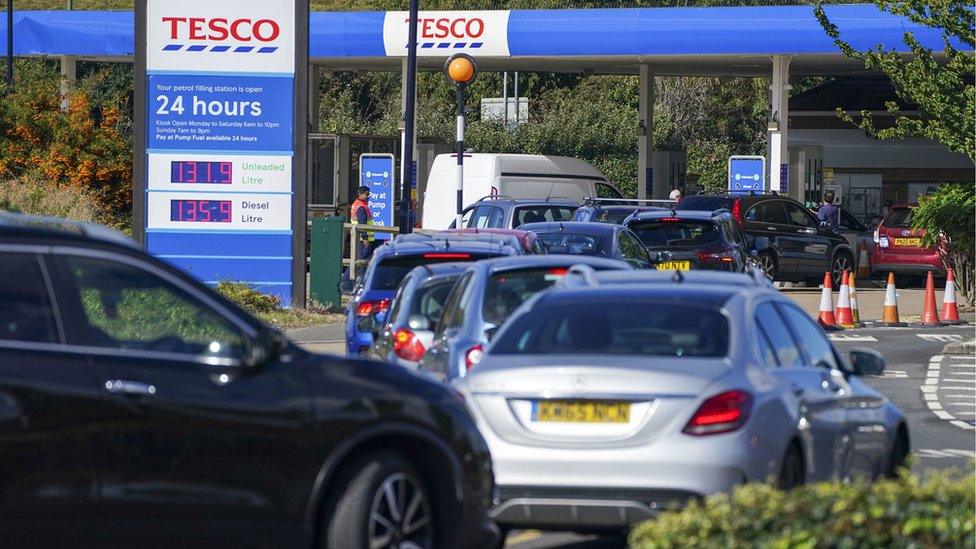
- Published27 September 2021
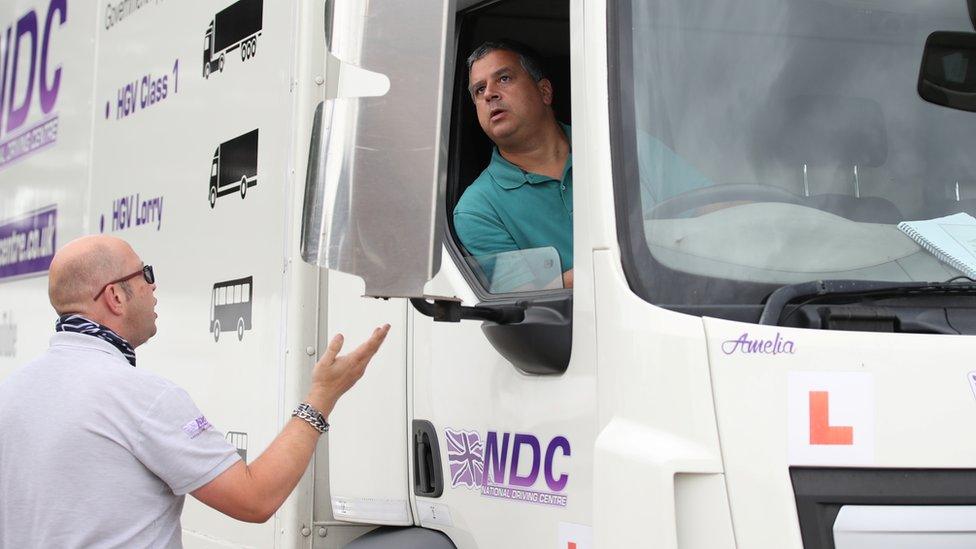
- Published27 September 2021
